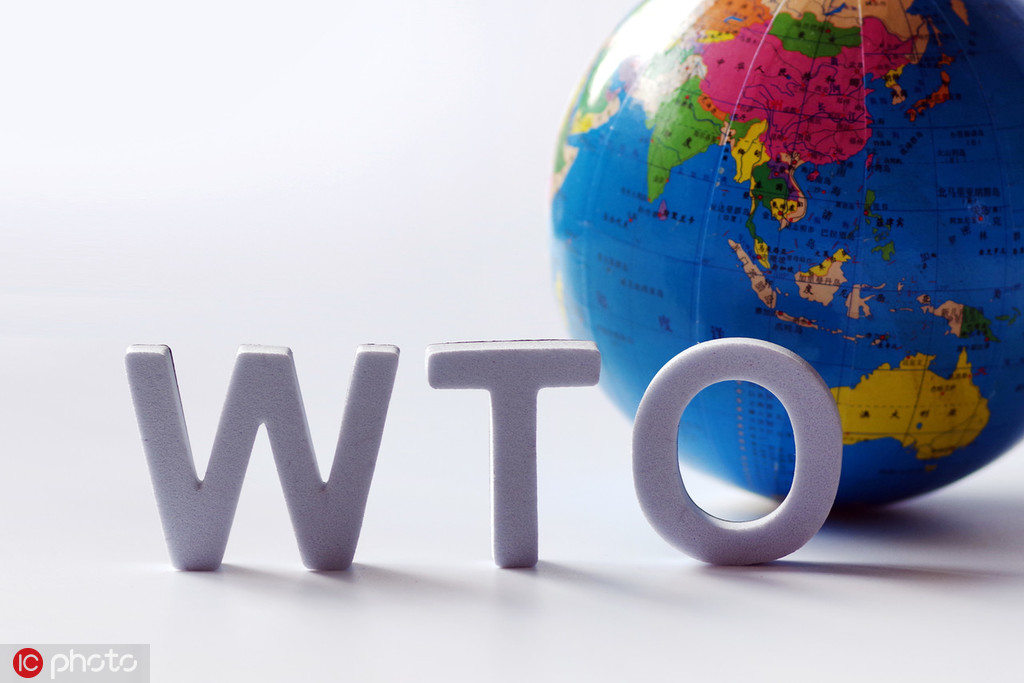Unilateralism has no place in global trade
chinadaily.com.cn | Updated: 2019-12-12 13:34

Editor’s note: The World Trade Organization’s appellate body has suspended its arrangement to settle new trade disputes since Dec 10 because the United States has blocked appointment of new judges. Why has the US done so? And what should be done to ensure the multilateral trade system remains relevant? Three experts share their views on the issue with China Daily’s Liu Jianna. Excerpts follow:
Washington biggest threat to global trading system
The collapse of the WTO dispute settlement mechanism, a cornerstone of the multilateral trading system, is both significant and symbolic. As Pascal Lamy, former WTO director-general, said, the world trade body is facing a crisis of survival. A paralyzed appellate court means a return to the “law of jungle”.
That the US has forced the WTO into a tailspin shows that, from a bearer of global responsibilities and provider of global public goods, it has become a usurper of international interests and rights in a bid to maximize its own interests. Which poses the severest challenge to the multilateral trading system.
Yet, to a large extent, Washington does not want to completely abandon the WTO or overthrow it because that, in turn, would harm the US economy in a big way. What the US administration is doing is exerting maximum pressure on the WTO to ensure its reforms proceed in a way that fulfills American interests.
If other WTO member economies don’t stand up to safeguard the rules-based multilateral trading system, the global trade body could be marginalized, and even disintegrate. The key to ensure the WTO remains relevant to global trade is to reach an agreement on major issues by narrowing, if not bridging, the differences in the different reform plans, including such sensitive ones as developing country status. Developed and developing economies have to reach a consensus to save the WTO despite their largely incompatible stances.
On some level, the fact that the US has used some bilateral and multilateral trade negotiations, such as the United States-Mexico-Canada Agreement that has some poison pill terms and fully embodies the “America first” policy, to establish a new trade system that sanctions legality to protectionism and exert pressure on the WTO is as alarming as the paralysis of the WTO appellate body.
Zhang Monan, lead researcher at the Department of American and European Studies, China Center for International Economic Exchanges.
Others must stand up and safeguard WTO
Against the backdrop of declining global trade and falling investment growth, the paralysis of the WTO’s appellate body adds to the woes of the world economy, by increasing uncertainties, and could engineer a shift from “law of just rules” to the “law of the jungle”. Which in turn could encourage some economies to indulge in more protectionist and unilateral moves.
Ironically, the US which has sabotaged the appellate body is the very country that led the establishment of the WTO. But now the US is out to damage the very organization it helped build.
Some economies have proposed to elbow the US out, which is unrealistic, because the US is still the largest economy in the world, whose opinions matter to the world. True, WTO member economies, including the European Union, Canada and Norway, have resorted to arbitration among a certain group of economies to meet the new challenge. But such arbitrations are not compulsory. In other words, such arbitration bodies are no replacement for the WTO appellate court.
The dilemma the WTO appellate body faces cannot be resolved any time soon, especially because the US seems determined to get rid of the body for good and make it extremely difficult for the WTO members to reach a consensus. The priority is to make joint efforts to revive the appellate body, resume its normal operations and encourage all WTO members to hold talks to resolve the issue.
Cui Fan, a professor of international trade at the University of International Business and Economics
Blind pursuit of US interests harmful to all
The US has targeted the WTO’s appellate body because it didn’t support the US’ unilateral and protectionist moves. Washington seems to have realized that it can no longer control the WTO and force it to issue rulings in its favor. Yet by blocking the normal operation of the dispute settlement system, it has dealt a blow to not only the WTO but also multilateralism.
So developing and developed economies should build a joint front to prompt the US to reduce the damage, and thus uphold the multilateral trading system. Since European economies have also fallen victim to the US trade wars or bullying, they should try to shake off the US’ influence and defend free global trade. This will not only help developing and developed economies to forge some consensuses, but also be conducive to the continuous functioning of the WTO in the long term.
Su Hao, a professor of international relations at China Foreign Affairs University
























